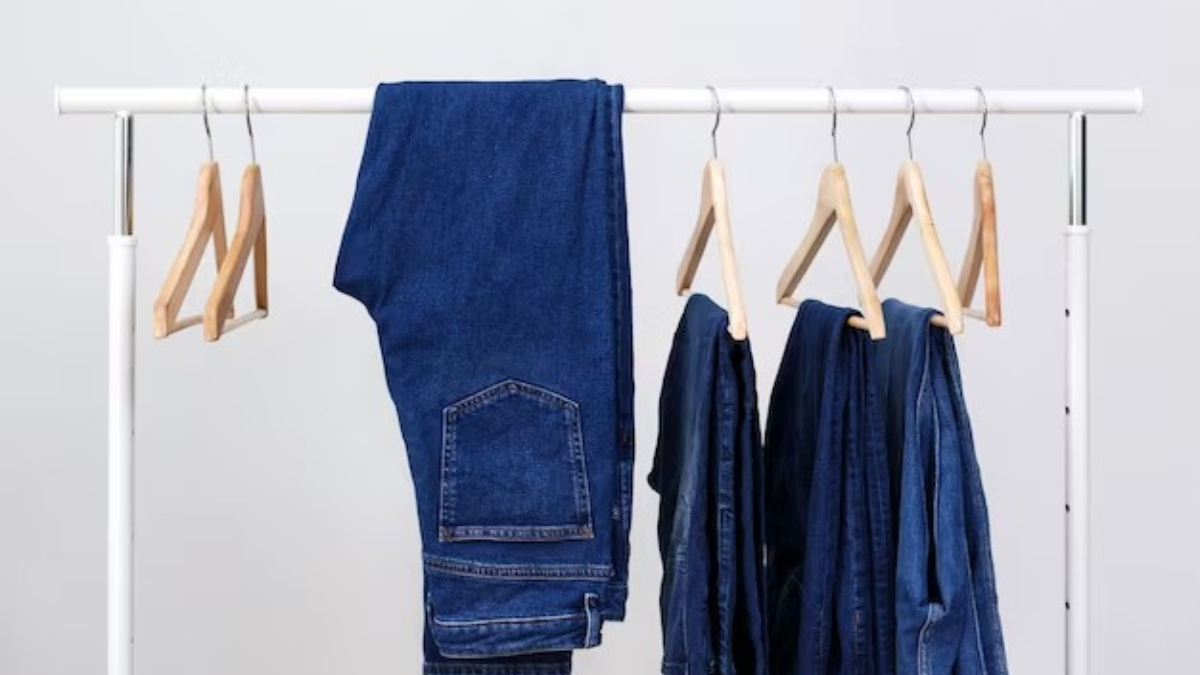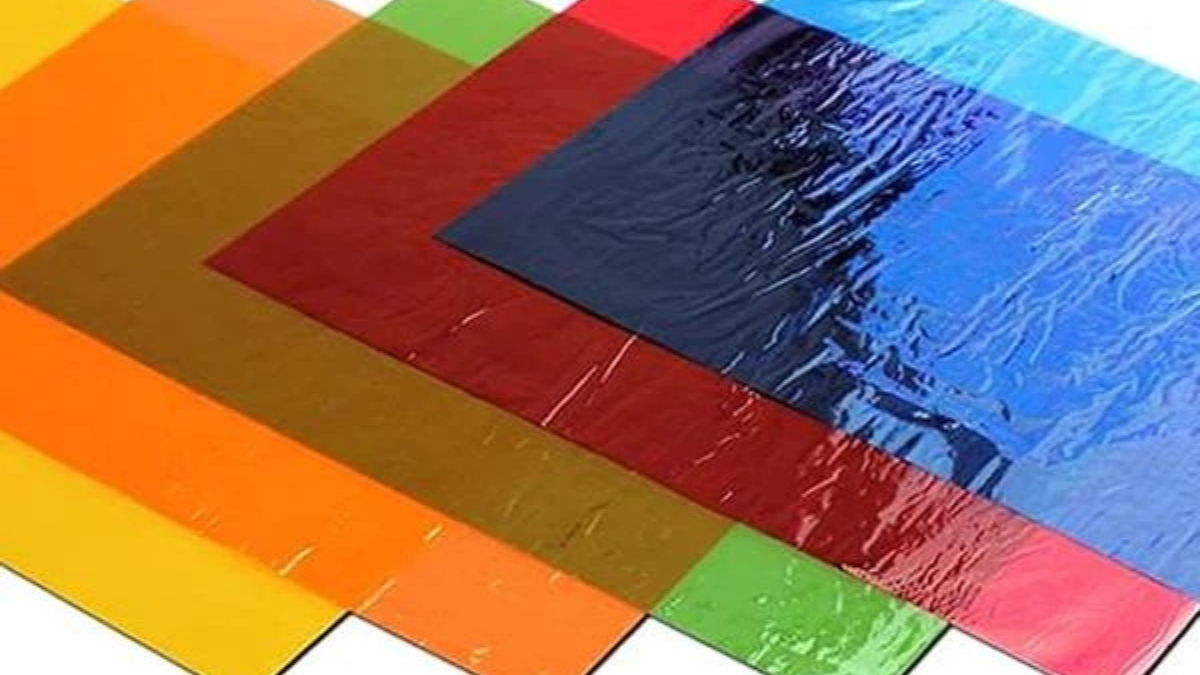PRODUCT
Best Pant Hangers: Keeping Your Wardrobe Neat and Tidy

‘Introduction
Significance of proper pant storage
Keeping your clothes arranged is a simple yet effective step toward a daily routine that is stress-free. The correct hangers may make all the difference when it comes to trousers.
The role of pant hangers in organizing wardrobes
Pant hangers are useful for more than just keeping your pants in place. They also help keep your wardrobe organized, keep creases at bay, and make it simple to find your favorite pairs.
Types of Pant Hangers
Clip pant hangers
Clip hangers for pants are widely used and multipurpose, providing a firm hold without damaging the material.
Clamp pant hangers
Heavy-duty trousers benefit greatly from the secure grip that clamp pant hangers offer, since they keep pants from falling off.
Skirt and slack hangers
These hangers, which have adjustable clips, are ideal for tucking in skirts and pants.
Velvet pant hangers
Velvet pant hangers provide a non-slip surface that keeps clothing from slipping off while also giving your closet a refined look.
Benefits of Using Pant Hangers
Preventing wrinkles and creases
Pants that are hanging correctly avoid wrinkles, which saves you time when ironing and guarantees a professional appearance every time.
Maximizing closet space
By hanging pants vertically, you may make greater use of available space and fit more clothing and accessories.
Facilitating easy access and visibility
Pant hangers make it easy to choose the ideal pants for each occasion because each pair is visible at a glance.
Choosing the Right Pant Hangers
Consideration of pant material
Certain hangers are needed for different materials; velvet hangers are soft on delicate textiles, whereas clamp hangers work well with bulkier materials.
Size and weight capacity
Choose hangers that will not injure the fabric or the hanger by supporting the weight and size of your jeans with ease.
Special features and customization options
Certain hangers include extra features like swivel hooks or adjustable clips, which allow you to customize them to suit your needs.
Organizing Your Closet with Pant Hangers
Sorting by color or occasion
Finding the perfect pair of pants for every ensemble or occasion is made simple by organizing them by color or occasion.
Utilizing space efficiently
To maximize vertical space and maintain a tidy and orderly wardrobe, hang pants in a cascading style.
Maintenance tips for long-lasting use
To extend the life of your pant hanger’s and preserve the best possible state for your wardrobe, give them regular inspections and upkeep.
Popular Brands and Their Pant Hangers
Quality and durability
To guarantee a long-lasting investment, look into pant hanger’s from reliable manufacturers that are renowned for their quality and toughness.
User reviews and recommendations
When selecting pant hanger’s, take into account other users’ experiences as well. User evaluations may offer insightful information about how well-performing particular manufacturers function.
DIY Pant Hanger Solutions
Creative alternatives for small budgets
If you’re on a tight budget, think about do-it-yourself options like recycling existing hangers or utilizing shower curtain rings.
Upcycling and repurposing for eco-friendly options
In addition to cutting waste, upcycling used materials into pant hanger’s gives your wardrobe a distinctive look.
Pant Hanger Hacks
Preventing slipping with grips or padding
To stop trousers from falling off hangers, add grips or cushioning, especially if the material is prone to slide.
Multi-functional uses beyond pants
Get creative with your hangers; they may be recycled for accessories or even used to showcase artwork.
Addressing Common Pant Hanger Issues
Fading colors or stains
To prevent color transfer and maintain the integrity of your pants, choose hangers with non-staining qualities.
Dealing with rust or deterioration
Select hangers that are resistant to rust and make sure you check them frequently for wear or damage.
Pant Hangers for Special Clothing Items
Hanging delicate fabrics
Velvet hangers are a great option for delicate materials since they offer a secure and soft hold without inflicting any harm.
Showcasing designer or special edition pants
Invest on high-quality hangers to give your designer or limited-edition trousers an extra layer of protection.
Where to Purchase Quality Pant Hangers
Retail stores
Pant hangers come in a range of styles and sizes, so you can see them in person and select the ones that best suit your needs.
Online marketplaces
Investigate internet resources for a wider assortment; these platforms frequently provide special offers and user evaluations to help with decision-making.
Pant Hanger Maintenance Tips
Cleaning and preserving the hanger’s
To keep your hangers looking nice, wipe them down with a moist cloth on a regular basis to get rid of dust.
Replacing worn-out or damaged hanger’s
To maintain the ongoing organization of your clothes, don’t be afraid to replace worn-out or damaged hangers as soon as possible.
Pant Hangers as a Gifting Option
Thoughtful gift ideas for fashion enthusiasts
Give fashion fans high-quality pant hangers as a thoughtful and useful addition to their wardrobes.
Customization and personalization options
Look into personalized trouser hangers as a distinctive present idea that might give someone’s closet a little something extra.
Conclusion
Summarizing the benefits and versatility of pant hangers
To sum up, purchasing the best pant hangers is a step toward a more efficient, aesthetically beautiful, and orderly closet. It goes beyond simple storage.
FAQs
How many pants can a typical pant hanger hold?
Depending on the design, a basic pant hanger may carry one to two pairs of pants comfortably, however the capacity varies.
Can velvet pant hanger’s be used for delicate fabrics?
Of course! Velvet hangers are perfect for delicate textiles since they don’t harm them and offer a gentle hold.
Are there pant hanger’s suitable for children’s clothing?
Yes, a number of businesses have smaller pant hangers that work well for effectively arranging kids’ clothes.
Do clip pant hanger’s leave marks on fabrics?
Clip pant hanger’s when used properly shouldn’t leave any marks, however handling them carefully is necessary to prevent any possible harm.
Can pant hanger’s be used for non-clothing items?
Of course! Pant hanger’s may be used to creatively display non-clothing objects or even to hang accessories and scarves.
PRODUCT
Cellophane Unwrapped: Transparent, Biodegradable, and Timeless

Introduction
Definition and Origin of Cellophane
Although the name “cellophane” may conjure images of clear gift wrap, this adaptable material has a lengthy history and is used for a variety of purposes beyond simple packing. Let’s take a closer look at the world of cellophane’s, from its historical roots to its current renaissance.
Historical Evolution in Packaging
Cellophane’s, which was first developed in the early 1900s, revolutionized the materials used in packaging. Swiss scientist Jacques E. Brandenberger is credited with creating it when he was trying to make a waterproof film. He had no idea how his finding would change the packaging business.
Properties of Cellophane
Transparency and Clarity
The exceptional transparency of cellophane’s is one of its distinguishing qualities. In contrast to conventional packaging materials, cellophane’s enhances the visual attractiveness of the items it encases by enabling buyers to view the contents.
Biodegradability and Eco-Friendly Nature
Given the importance of environmental problems in today’s world, cellophane’s is unique in that it degrades naturally. Because it is made of natural cellulose fibers, it breaks down more quickly than synthetic alternatives, making it a more environmentally responsible option.
Manufacturing Process
Cellulose Extraction
First comes the process of removing cellulose from plant-based materials, mostly wood pulp, to create cellophane’s. After that, the cellulose is dissolved in carbon disulfide and alkali, producing a viscous solution.
Transformation into Cellophane Sheets
After passing through a spinneret, the solution is extruded to create thin sheets that are then dried, cleaned, and bleached. The finished result is a flexible, translucent film that may be used in a wide range of situations.
Applications in Packaging
Food Industry
The food business is a natural fit for cellophane’s. Its permeability to moisture aids in keeping the goods fresh, and its transparency enables customers to view the product before purchasing. Grocery stores frequently include cellophane’s packaging, from pasta to candy wrappers.
Gift Wrapping
Cellophane’s is a popular gift wrap because of its shiny, clean look. It is preferred for its adaptability and convenience of usage in making visually appealing gift arrangements, as well as the refinement it brings to presents.
Cellophane vs. Other Packaging Materials
Contrasting with Plastic
It is unavoidable to draw comparisons between plastic and cellophane’s. Despite plastic’s dominance in the market due to its durability, cellophane’s presents a more environmentally friendly choice. Customers are becoming more and more drawn to cellophane’s because of its environmental benefits.
Environmental Impact Comparison
Even with the current emphasis on sustainability, cellophane’s is a strong competitor against plastic. In addition to being biodegradable, it uses less fossil fuels during manufacture, leaving a less carbon imprint.
Innovations in Cellophane Technology
Coatings and Enhancements
Modern cellophane’s is frequently coated to improve its durability and moisture resistance in order to overcome perceived weaknesses. Its usefulness and attractiveness are expanded by these advances.
Functional Adaptations
Beyond its conventional uses, cellophane’s has undergone changes. Tear-resistant varieties, heat-sealable cellophane’s for better packing, and modifications for niche applications like flowery wraps are a few examples of innovations.
Challenges and Criticisms
Perceived Fragility
Cellophane’s is sometimes criticized for being comparatively brittle to plastic. Technology has solved this issue, though, and cellophane’s is now a more reliable option than it was in the past.
Addressing Environmental Concerns
Even though cellophane’s is biodegradable, procedures that affect the environment are still used in its manufacture. The industry is always working to reduce these impacts and improve the sustainability of the material.
The Resurgence of Cellophane
Modern Relevance
Cellophane’s is not a thing of the past; on the contrary, its use is growing again. Its eco-friendliness is in line with the principles of modern consumers, and its visual appeal keeps it a mainstay in a variety of sectors.
Artistic and Craft Uses
Cellophane’s has use in crafts and the arts and crafts industry aside from packaging. It is the perfect medium for creative expressions, from complex art projects to window decorations, because of its transparency and adaptability.
Consumer Awareness and Sustainability
Educating Consumers
Consumer awareness of sustainable packaging options is increasing, which calls for further education. In order to promote the advantages of cellophane and influence people to choose environmentally responsible choices, brands are essential.
Sustainable Choices
Using cellophane instead of plastic becomes a little but significant step toward sustainability in a society that struggles with plastic waste. Customers are urged to choose goods wrapped with cellophane to help the environment in the future.
Conclusion
To sum up, cellophane is more than just a material for packaging—it’s an example of sustainability and ingenuity. Cellophane’s transparency transcends its physical form, foreshadowing a future where packaging meets environmental responsibility as consumer tastes change toward eco-friendly options.
FAQs
Is cellophane better for the environment than plastic?
In comparison to plastic, cellophane is biodegradable and uses fewer fossil fuels during manufacture.
What are the main applications of cellophane?
Cellophane’s transparency and visual appeal make it a popular choice for gift wrapping and packaging in the food business.
How is cellophane made?
In order to make cellophane, cellulose must first be extracted from plant sources, dissolved in carbon disulfide and alkali, and then processed through a number of steps to generate thin sheets.
What innovations have been made in cellophane technology?
Coatings for increased durability, variations resistant to tearing, and heat-sealable cellophane for better packaging are examples of innovations.
How can consumers contribute to sustainability with cellophane?
Cellophane packaging is an option for consumers, which encourages more environmentally friendly and sustainable packaging choices.
PRODUCT
Artificial Lenses: Transforming Vision Correction

Artificial lense’s have become a game-changing answer in the ever-evolving field of ophthalmology, completely changing the way that vision correction is practiced. Let’s examine the sorts, advantages, surgical techniques, and effects of these state-of-the-art lenses on people’s daily lives as we dig into their complexities.
Evolution of Vision Correction
Vision correction has advanced significantly with the invention of artificial lense’s. Refractive faults were traditionally treated mostly with glasses and contact lenses. But the development of artificial lense’s has changed how we see and handle vision issues.
Types of Artificial Lenses
Intraocular Lenses (IOLs)
Intraocular lenses, or IOLs for short, are lenses that are surgically inserted to replace the normal lens in the eye. These lenses are available in a variety of materials and styles to meet a range of visual requirements.
Phakic Intraocular Lenses
People with high refractive faults who might not be good candidates for conventional laser surgery can benefit from phakic intraocular lenses. An option is offered by these lenses, which are implanted without removing the normal lens.
Multifocal Lenses
Multifocal lenses provide a flexible option that addresses both near- and farsightedness. By reducing reliance on reading glasses, this cutting-edge technology offers a more complete choice for vision correction.
Benefits of Artificial Lenses
The use of artificial lense’s improves people’s lives in many ways, especially for those who are in need of vision correction.
Improved Vision Correction
Artificial lense’s provide more accurate and customized vision correction than conventional techniques. The end effect is frequently eyesight that is sharper, clearer, and more individualized.
Reduced Dependence on Glasses or Contact Lenses
The lack of need for outside assistance like glasses or contact lenses is one of the main benefits. A lot of people feel that they have more flexibility after getting artificial lenses implanted.
Surgical Procedure
For individuals thinking about artificial lenses, it is essential to comprehend the surgical procedure. The process entails removing the original lens and implanting the artificial lens, which calls for a precise and delicate surgical technique performed by qualified specialists.
Overview of the Surgical Process
Usually, the procedure is performed as an outpatient with little pain. Small incisions are made by surgeons to ensure a speedy recovery and less scarring. Technological developments have improved the process’ efficiency and safety.
Recovery and Aftercare
Following surgery, recuperation time is required. To maximize the healing process and enhance the outcomes, patients receive comprehensive guidelines for aftercare. It’s crucial to schedule routine check-ups with the eye doctor to track your improvement.
Evolution of Artificial Lenses
Historical Perspective
The development of artificial lenses began with the first eyesight correcting experiments. The development of lenses from their simple origins to the advanced alternatives accessible now is indicative of the ongoing quest for improved eyesight.
Technological Advancements
Advancements in technology have led to the unprecedented success of artificial lenses in recent times. The dedication to quality in vision correction is demonstrated by the precise manufacture, biocompatible materials, and customisable solutions.
Customization in Artificial Lenses
Tailoring Lenses to Individual Needs
The capacity to tailor artificial lenses to meet specific needs is one of its noteworthy advantages. With the use of sophisticated diagnostic equipment, optometrists may customize lens parameters for the best possible outcomes.
Advanced Technology for Precision
Modern technologies that improve artificial lens implantation precision include computer-assisted surgery and wavefront analysis. Better results and greater patient satisfaction are a result of this degree of personalization.
Challenges and Considerations
Artificial lens implantation carries several possible hazards and concerns, just like any other medical operation. It is essential to have knowledge about these elements in order to make wise decisions.
Potential Risks and Complications
Even while artificial lenses are typically safe, there are still certain concerns, such the possibility of infection, irritation, or unsatisfactory outcomes. These risks are reduced by having in-depth conversations with the surgeon and by following pre- and post-surgery instructions.
Precautions and Post-Surgery Care
Following surgery, patients are instructed to take particular precautions and care instructions. These might entail staying away from physically demanding activities, applying recommended eye drops, and going to follow-up sessions to track recovery.
Comparisons with Traditional Lenses
Advantages Over Conventional Methods
Comparing artificial lenses to conventional vision correction techniques reveals a number of benefits. For many, they’re an appealing alternative because of their long-term cost-effectiveness, lower maintenance requirements, and improved visual acuity.
Patient Testimonials
First-hand accounts from people who have had prosthetic lens implantations offer insightful information. Many emphasize the good influence on their life and express their newfound joy and independence.
Cost and Accessibility
Affordability and Insurance Coverage
Artificial lens surgery can be expensive, and accessibility may be impacted by insurance coverage. Examining insurance choices and comprehending the financial implications are essential elements in the decision-making process.
Availability of Artificial Lenses Globally
Around the world, access to artificial lenses is becoming more widespread as healthcare infrastructure advances. More people across the globe may now take advantage of this revolutionary eyesight correction method.
Future Trends in Artificial Lenses
Emerging Technologies
Future developments in the realm of artificial lenses portend ever more complex and advanced solutions. Improved biocompatibility, increased durability, and more flexibility are a few examples of emerging technology.
Research and Development
Research is still ongoing to overcome existing constraints and expand the capabilities of artificial lenses. Technology specialists and ophthalmology professionals working together create an exciting future for vision correction.
Impact on Daily Life
Real-Life Stories of Individuals with Artificial Lenses
Artificial lenses have an influence that goes beyond better eyesight. Many people report significant improvements in their everyday life, such as boosted self-esteem and the capacity to participate in activities without being limited by vision issues.
Lifestyle Changes After the Procedure
A change in lifestyle is typically the result of the improved visual acuity. Artificial lenses allow people to completely appreciate life, whether it is through hobbies, outdoor activities, or just taking in the beauty of the environment.
Myths and Facts
Debunking Common Misconceptions
For prospective applicants, dispelling common misconceptions regarding artificial lenses is essential. People can make better selections if these features are made clear. This includes dispelling myths about outcomes and surgical anxiety.
Clarifying Doubts about Artificial Lenses
It’s critical that patients and eye care specialists communicate openly. Assuaging worries and dispelling uncertainties increases trust in the choice to have an artificial lens implanted.
Consultation and Decision-Making
Importance of Professional Advice
It is crucial to consult a specialist while making decisions. In order to ensure that decisions are well-informed, eye care specialists may evaluate each patient’s needs, go over options, and set reasonable expectations.
Steps to Make an Informed Decision
Making an informed choice about artificial lenses requires knowing the process, assessing the risks and advantages, and setting reasonable expectations. It is recommended to have open communication with the surgeon.
Conclusion
In summary, artificial lenses have completely changed the field of vision correction by providing an efficient and customized option. The way this technology has developed, its advantages, and its projected tendencies demonstrate how revolutionary it is. A world of better eyesight and a higher quality of life is accessible to those who make an educated decision under the guidance of expert assistance.
FAQs
Are artificial lenses suitable for everyone?
It is important to get a personal consultation with an eye care specialist as artificial lenses may not be appropriate for every person.
Is the surgical procedure painful?
Local anesthetic is usually used throughout the surgical process to minimize pain.
How long does the recovery process take?
Although it varies, the healing process usually takes a few days to a few weeks.
Can artificial lenses be replaced or upgraded?
See your eye care provider whether replacing or updating your fake lenses is a possibility in your situation.
Do artificial lenses eliminate the need for routine eye check-ups?
Even after the implantation of an artificial lens, routine eye exams are still necessary for maintaining general eye health.
-

 TECNOLOGY9 months ago
TECNOLOGY9 months agoTech4SEO: Optimizing SEO Performance with Tech
-

 FASHION9 months ago
FASHION9 months agoWarm Sweaters: Embracing Cozy Style in Chilly Weather
-

 FASHION9 months ago
FASHION9 months agoLeather Pants for Men: Unveiling the Timeless Trend
-

 CRYPTO8 months ago
CRYPTO8 months agoExploring Staxum Crypto: A Comprehensive Guide
-

 FASHION9 months ago
FASHION9 months agoBridal Jewellery: Adorning Love and Tradition
-

 GAMES9 months ago
GAMES9 months agoThe Gameboy Color: A Journey Through Nostalgia
-

 INFORMATION9 months ago
INFORMATION9 months agoCindovies Unveiled: A Culinary and Cultural Journey
-

 INFORMATION9 months ago
INFORMATION9 months agoWaterways Journal Magazine: Navigating World of Water Transport
